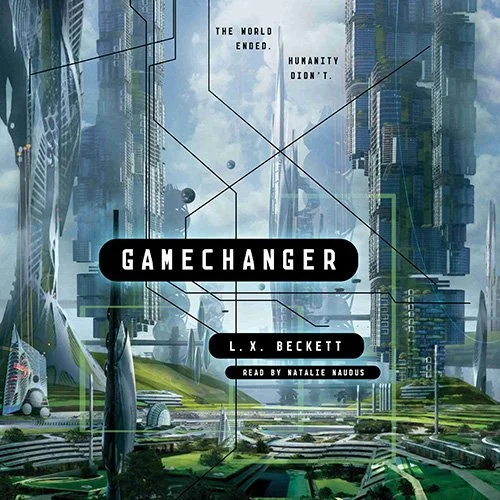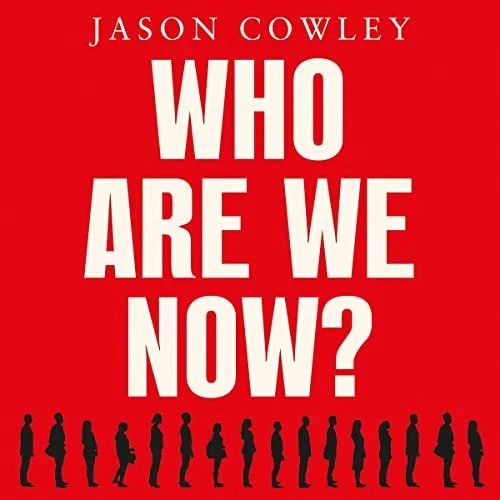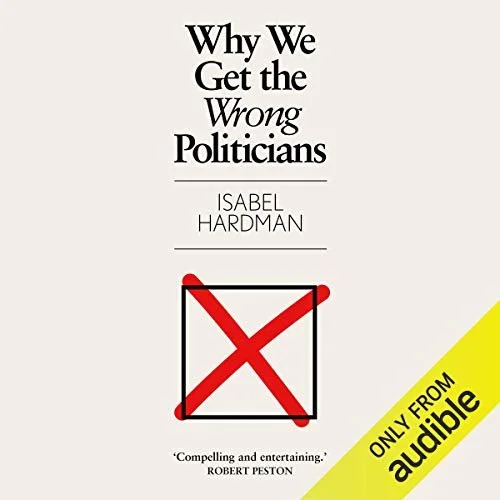Gamechanger by L. X. Beckett is part of a movement that says radical change is possible
Solarpunk is creating waves in the sci-fi world. It’s a new(ish) subgenre that hopes to inspire people to make the radical change needed to save the world by showing the better futures that said change can bring. So far, the subgenre has produced short story collections, visual arts and even a yogurt advert, but until recently I hadn’t found much longer form fiction. Imagine my delight when I discovered L. X. Beckett's Gamechanger, my first solarpunk novel.
For those who need an introduction to solarpunk, this BBC news story quotes Michelle Tulumello, a solarpunk art teacher in New York state, who describes it as: "Really the only solution to the existential corner of climate disaster we have backed ourselves into as a species."
Solarpunk is partly a subgenre of science fiction and partly an art movement in its own right. It is dedicated to showing that a better future is not only possible, but is desirable and achievable. It has emerged as a rebellion against our contemporary obsession with dystopian stories, from The Hunger Games to Black Mirror.
More utopian futures
The solar in the name is self-explanatory. Punk refers to cyberpunk, a sci-fi subgenre where stories are set in dystopian worlds where tech has robbed us of our humanity, as well as other “punk” subgenres of sci-fi such as steampunk, dieselpunk, clockpunk (no really) and others.
Like the Culture novels of Iain M. Banks, solarpunk stories are not set in paradises even if they are set in utopian (or at least more utopian than the present) societies. There can still be grimness, murder, betrayal, death, injustice - in other words plot conventions that make for entertaining stories - but the societies these stories are set in is overall better than what we have now.
This is very much the case for Gamechanger, which is set in a future where humanity is working to rebuild the natural environment after the damage done by past generations. Citizens are connected to a virtual credits scoring system based on how much they do to make the world more sustainable and socially just. The plot of the novel follows Rubi Whiting, who works representing people with low social credit, as she takes on the difficult case of Luciano Pox who speaks out against public efforts to repair the environment.
Cyberpunk without the doom and gloom
The novel shows a world where social attitudes have changed. Society is not consumed by the need to produce more wealth and growth through the consumption of natural resources. Work is being done to rebuild the environment. The current cohort of young people Rubi is a part of are described as the “Bounceback Generation”.
This novel is quintessential solarpunk. It’s set in a more socially just and sustainable world, where even though life has its challenges people are working hard to make the world a better place. What makes Gamechanger an interesting read was that despite being a solarpunk novel, it’s also very cyberpunk. It’s cyberpunk without the doom and gloom.
Gamechanger is set in a high-tech world. The novel features fully 3D immersive virtual environments, augmented reality and self-aware AI assistants. Part of the plot takes place in virtual worlds where Rubi is the star of immersive simulated RPGs. The novel doesn’t have the oppressive governments, all powerful corporations and environmental destruction that are typical of cyberpunk novels, but does contain other core elements of the subgenre. It takes cyberpunk as a jumping off point for a solarpunk story.
Optimism about the future
Politically this book says that we can be optimistic about the future and our environment. Not in a naive, it will all work out, way but in an inspiring, we can band together for a better world, way.
This is in strong contrast to cyberpunk, whose stories are usually set in a world where irreversible environmental damage has been done. The opening crawl of Blade Runner 2049 mentions the complete collapse of the environment, for example. The grim warnings of cyberpunk stories have done little to motivate us to change and avert the disasters they foretell.
Gamechanger shows us that through collective action we can make a positive difference for everyone. Hopefully this optimism will inspire the change we need to live in a more sustainable and socially just world, like the one shown in Gamechanger.
Against cynical inaction
This novel, and solarpunk more widely, are part of a political and artistic movement that says that positive change is possible. It’s a long way from solarpunk, but Vicky Spratt's recent non-fiction study of the housing crisis, Tenants, ends with a determined plea to make the world better for everyone in the face of cynicism. We won’t know what’s possible until we try, she writes.
Across politics and culture people are saying that positive change can lead to a bright future. There’s no need to be cynical, in fact it’s damaging our chances of building a better world, so let’s be optimistic. Not blindly optimistic, but realistic about how we can make a better world. This movement says that the radical change needed for a more sustainable and socially just world will be hard, but it both can be done and will lead to a better future than the one brought by cynical inaction.
We need less of the doom and gloom that encourages inaction and more of this optimism, such as in novels like Gamechanger. Gamechanger is honest about the size of the problems we face, but it does offer hope. Hope to inspire us to make the world a better place. Hope that leads to action.
With that, I’m off to weed a communal flowerbed to make this world a little nicer for everyone.



